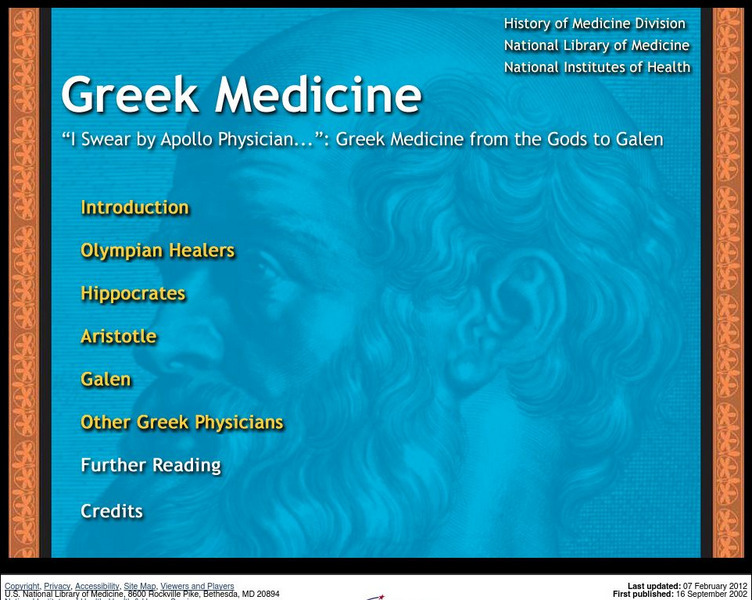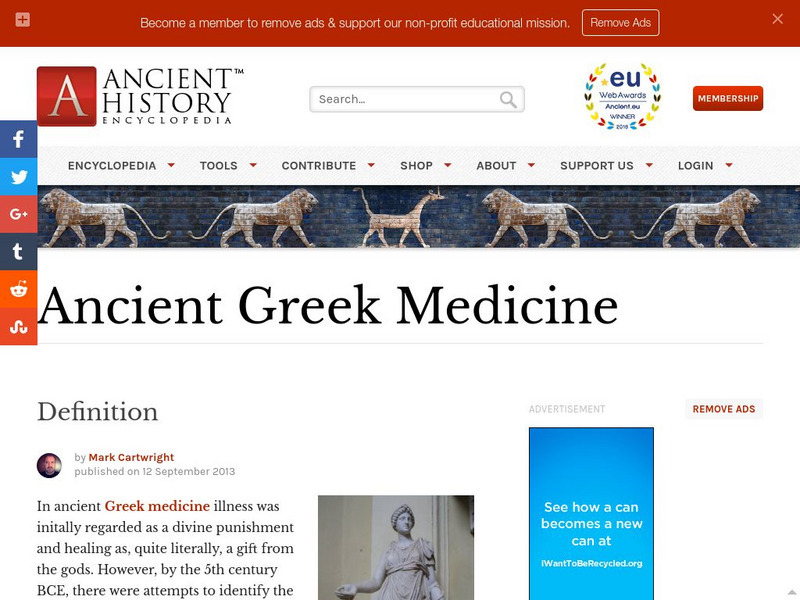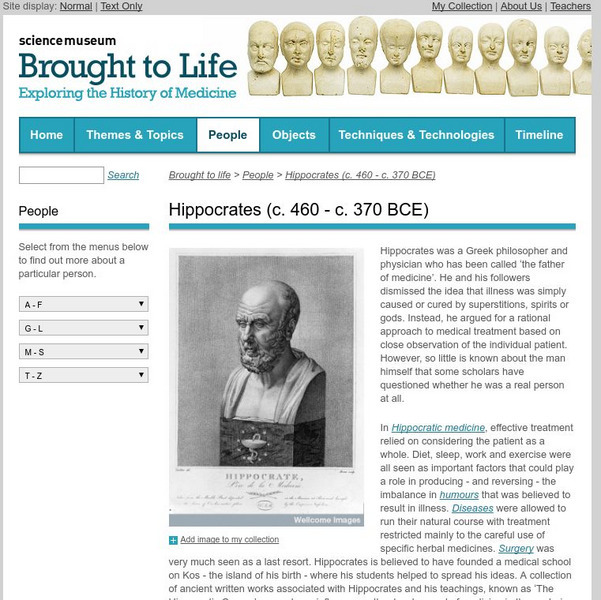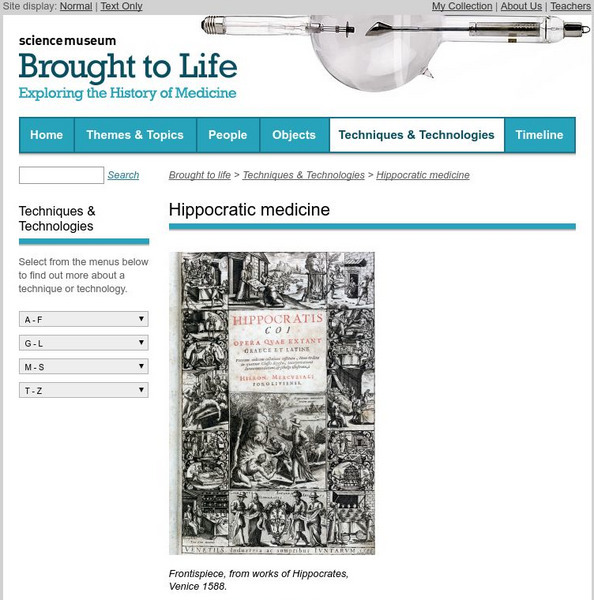Hi, what do you want to do?
Curated OER
Who Was Hippocrates?
In this Hippocrates learning exercise, students study and learn facts about the contribution of Hippocrates to medicine. After reading the one page text, students may answer 4 essay questions.
Curated OER
Hippocratic Medical Rounds
A very interesting way to model Hippocrates allows your clas to to compare world views and to illustrate how ideas have changed at key times throughout the history of science. This simulation has students role play patients and physicians.
Curated OER
Stay Well
Students complete a three part activity lesson to identify elements of longevity in life expectancies and health. In this life expectancies lesson, students read background information about life expectancy data, and visit links to for...
Curated OER
Explore Rx Quiz
In this exploring prescriptions worksheet, students answer 6 multiple choice questions related to diseases, medicine, the human body and poisonous plants. Students use an on line web site that gives them an immediate score.
Curated OER
The Rise of Islam
In this Islamic medicine worksheet, learners read about the rise of Islam and the history of medicine within the culture. Students read 5 passages.
Curated OER
Vocabulary practice: Similar Meanings
In this vocabulary practice worksheet, students examine 12 sets of 3 words each and then add 1 word to each list that is a synonym to the others. A word bank is provided.
National Institutes of Health
National Library of Medicine: Greek Medicine
Much like a great deal of western culture, modern medicine also finds its roots in ancient Greek civilization. Travel to the time of the Olympians and ancient healers to discover just how much we have learned and gained from those who...
Able Media
The Asclepion: Medicine in Ancient Greece
Impressive Classics Technology Center site lists the achievements of the ancient Greeks in medicine from the time of Homer up to Hippocrates and the plague of Athens during the Peloponnesian war. Gives evidence from ancient texts.
University of Virginia
Antiqua Medicina: Hippocrates
Short, illustrated essay about Hippocrates and the central role he plays in understanding how medicine was perceived and practiced by the ancient Greeks. [Link back to the Antiqua Medicina home for access to a complete history of...
Massachusetts Institute of Technology
Mit: Internet Classics Archive: Works by Hippocrates
Contains s number of works written by Hippocrates and translated by Francis Adams. Extensive primary source material.
World History Encyclopedia
World History Encyclopedia: Greek Medicine
Discusses the history of Greek medicine from ancient times, and the impact of important figures such as Hippocrates, Diocles of Carystus and Praxagoras of Cos. Some of the significant advances in diagnosis and treatment are described....
Other
Greek Medicine: Hippocrates: Father of Medicine
Looks at the life of Hippocrates and the significant impact he had, and continues to have today, on the practice of medicine.
Science Museum, London
Science Museum: Brought to Life: Hippocrates (C. 460 C. 370 Bce)
A brief overview of Hippocrates and his ideas about effective medicine.
Science Museum, London
Science Museum: Brought to Life: Hippocratic Medicine
A brief overview of Hippocratic medicine.
Other
Ancient History: 10 Ancient Greek Inventions and Discoveries Still Used Today
Ten of the important inventions and innovations of the ancient Greeks are described. These include the water mill, the odometer, alarm clocks, cartography, the Olympics, geometry, Hippocratic medicine, philosophy, democracy, and...
Curated OER
Educational Technology Clearinghouse: Clip Art Etc: Hippocrates
(c. 377B.C.) Greek physician known as the Father of Medicine.
PBS
Pbs Nova Online: The Hippocratic Oath Today
This resource from describes one of the oldest binding documents in history, the Hippocratic Oath. A history of the oath is provided along with information on current uses of the oath.
PBS
Pbs Nova Online: The Hippocratic Oath (Modern Version)
The Hippocratic Oath, one of the oldest surviving oaths, is provided here in a modern version written in 1964 by Louis Lasagna.





















